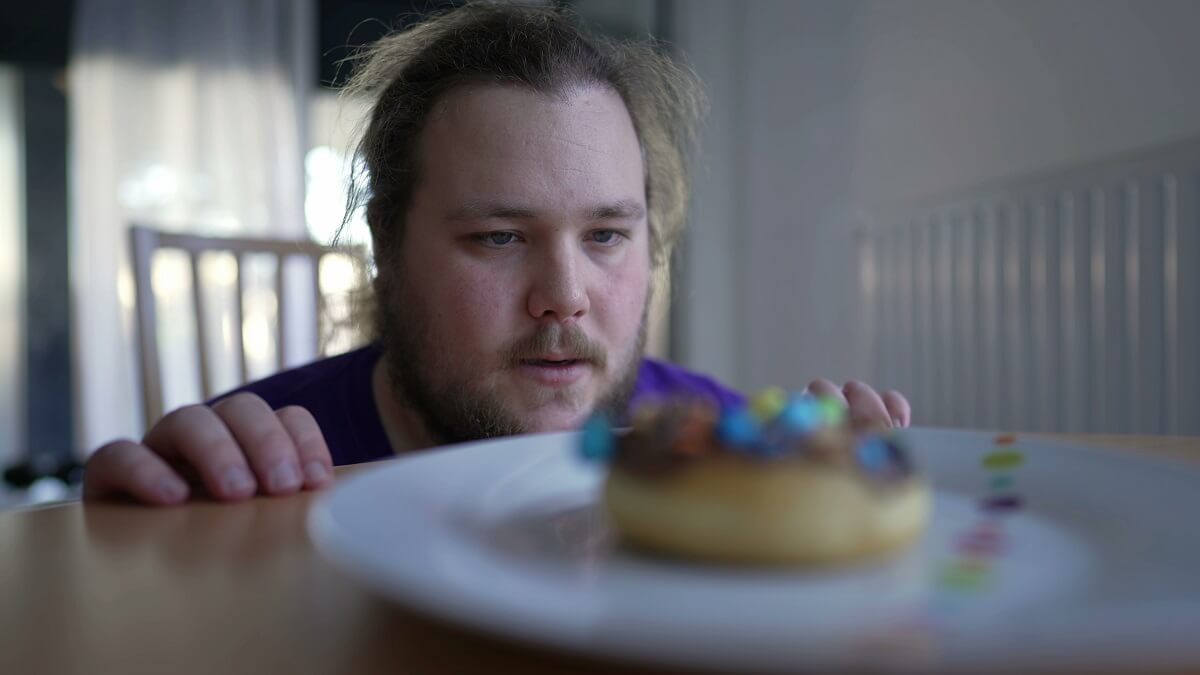If you’re trying to lose weight, managing your appetite is half the battle. But willpower alone may not be enough to overcome how your brain is wired, if the results of this study are anything to go by.
Individuals who suffer from disordered eating or overeating, which can lead to obesity, are more likely to have impaired connections in brain circuits that regulate memory and appetite, research has found.
The study, published in esteemed journal Nature, showed eating-related problems such as binge eating disorder (BED) are related to frayed connections between the lateral hypothalamus (LH) and dorsolateral hippocampus (dlHPC), potentially affecting their emotional response to eating ‘rewarding’ foods.
As the name suggests, the LH forms part of the wider hypothalamus section of the brain, and primarily drives feelings of hunger.
The dlHPC is a brain region associated with memory processing, particularly for the processing of facts and events. Previous studies have identified a link between loss of function in the hippocampus and obesity or related eating disorders such as BED.
For the study, researchers evaluated patients whose brains were already being monitored electrically in an epilepsy monitoring unit in hospital.
Researchers monitored brain activity as patients anticipated and then received a sweet treat (a chocolate milkshake). They found that both the dlHPC and the LH activated simultaneously when participants anticipated receiving the rewarding meal.
In individuals with obesity, the team found damage to this hypothalamus-hippocampus circuit was directly proportional to their body mass index (BMI). That is, in participants with a high BMI, the connection between the two brain areas was the most damaged.
Associate Professor Casey Halpern, senior author of the research, says the results show obesity and eating disorders are much more complex issues than simply eating too much.
“These findings underscore that some individual’s brains can be fundamentally different in regions that increase the risk for obesity,” he says.
“Conditions like disordered eating and obesity are a lot more complicated than simply managing self-control and eating healthier. What these individuals need is not more willpower, but the therapeutic equivalent of an electrician who can make right these connections inside their brain.”
To further validate the connection, Assoc. Prof. Halpern’s team used a technique called ‘brain clearing’ to analyse brain tissue. The technique revealed melanin-concentrating hormone, a hormone known to regulate feeding behaviour that is produced in the LH. They found the presence of MCH in the dlHPC, and nowhere else, confirming a link between the two regions.
He says he hopes the results lead to more targeted treatments for obesity and other eating disorders.
“The hippocampus has never been targeted to treat obesity, or the disordered eating that can sometimes cause obesity,” he says.
“We hope to be able to use this research to both identify which individuals are likely to develop obesity later in life and to develop novel therapies – both invasive and not – to help improve function of this critical circuit that seems to go awry in patients who are obese.”
Do you have trouble losing weight or keeping it off? Do you always feel hungry? Let us know in the comments section below.
Also read: Weight-loss drugs show willpower and self-restraint won’t fix obesity

